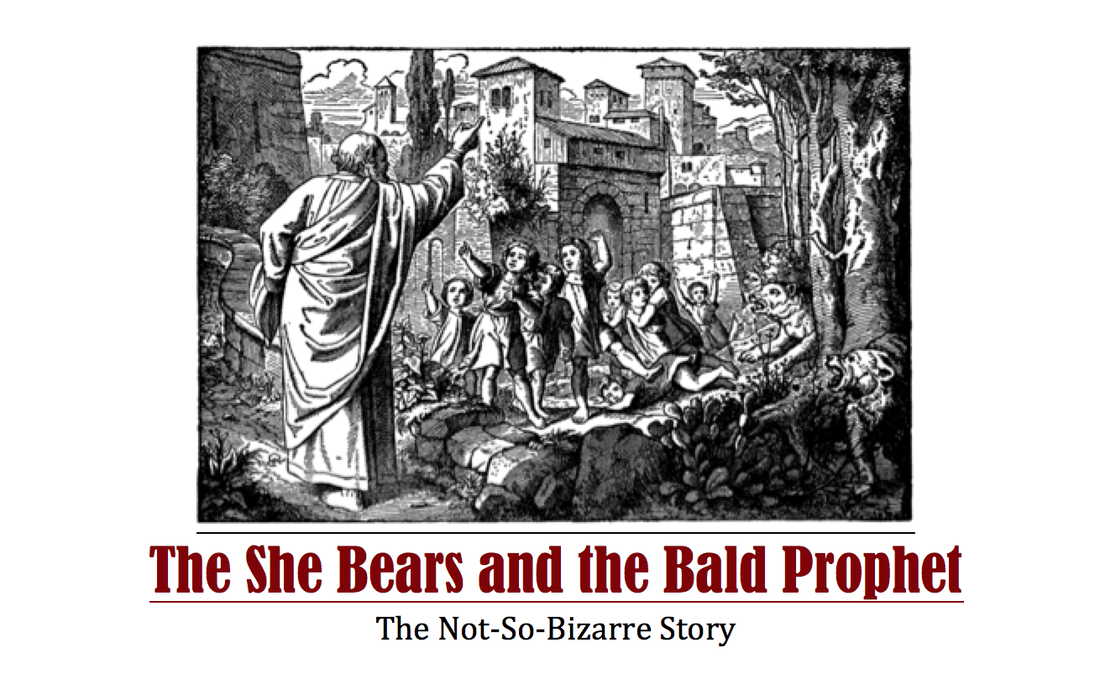The puzzling nature of the story of Elisha and the youths is resolved when we understand the setting in which it occured and the meaning behind the word translated “youths”. We will begin with a discussion of the former and conclude with an examination of the latter.
The story of Elisha and the bears is couched within an “Exodus” and “Conquest” setting. In 2 Kings 2:8 Elisha is the apprentice of Elijah when Elijah parts the Jordan River just as Moses parted the Red Sea. After the river is parted, both the prophet and his apprentice crossed over on dry land. Upon reaching the other side, Elisha witnessed Elijah caught up into heaven on the great chariot of God. Elisha cried after his father (Elijah), tore his garment, and clothed himself in the mantel of his teacher. The Spirit that was upon Elijah was transferred to Elisha just as the Spirit of Moses was transferred to Joshua. The changing of the guard was now complete and the New Joshua took over the reigns from the New Moses.
Just as Joshua parted the Jordan when he lead God’s people into the Promised Land, the New Joshua parts the Jordan and begins his conquest of Israel now filled with Canaanite religion.
Elisha’s first miracle as God’s prophet was to heal the waters of Jericho just as Moses had healed the waters of Marah in Exodus 15. Is it mere coincidence that Elisha’s first action as the New Joshua takes place at the city of Jericho? Where conquest once began, now healing begins anew.
We come now to the scene found in 2 Kings 2:23-25 where Elisha encountered the forty-two “youths” of Bethel. It is no coincidence that Elisha made his way from Jericho (the beginning of conquest) to Bethel (the center of Canaanite/Baal worship– the center of conquest). The “youths” Elisha encountered along the way were not merely children who had no respect for their elders, but were rather enemies of God and likely false prophets or priests of Baal. The word “youths” is translated from the Hebrew word “na’ar” and can have a wide range of meanings and is sometimes translated “official” or “steward”. For example, in 2 Samuel 16:1, Mephibosheth’s servant Ziba was the “na’ar” of Saul’s house, meaning he was the headmaster of the house. Ziba was clearly not a youth for 2 Samuel 19:17 tells us that he had fifteen sons. Another example is found in Ruth 2:5-6 where the foreman for Boaz’s reapers is referred to as a “na’ar”. Surely Boaz would not have placed a “youth” as head over the reapers.
In 2 Kings 2:24 a different word than na’ar is translated “youths”. Here it is the Hebrew word “yeled”. Scripture also uses this word to refer to individuals who are not youths. For example, in 1 Kings 12:8 Jeroboam decided to listen to the “yeladim” who had grown up with him and served with him rather than the advise of the elders. Before jumping to the conclusion that these peers of Jeroboam were “youths” it should be noted that Jeroboam was forty-one years old when he began to reign (2 Kings 14:21).
Rather than reading the story of 2 Kings 2:23-25 as a scene recounting a grouchy old man taking out his anger on small children, we should rather read it as a scene of conquest in which the prophet of God made war with the officials of Baal at Bethel (the center of Baalism) as he lead a conquest of the land and purged it of false worship.
The New Joshua took up the mantel of his teacher and restored the worship of God through both healing and conquest.
| The She Bears and the Bald Prophet.pdf |


 RSS Feed
RSS Feed
